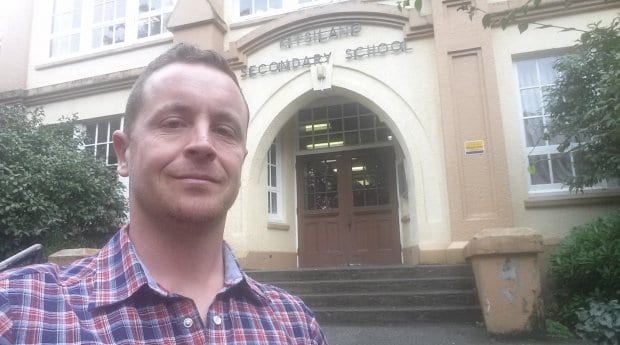Organizers of an international study on gay men, lesbians, bisexuals and transgender people in sports are seeking Canadian input, saying the country is under-represented in fact finding so far.
The researchers want to know about the experiences of LGBT community members in schools, the homophobia they may have faced in team sport situations and how those experiences have influenced sports involvement in later life.
“It’s about what kind of decisions you made around sport because of homophobia,” explains Erik Denison, a former CBC reporter now living in Australia, where he helped kick off the project.
“Sports is one those areas that causes us much trauma when we’re younger,” he says. “This is the last frontier of homophobia in general society.”
According to Denison, it’s the first such international sports study, and, with 7,500 participants so far, it’s also the largest study on the topic ever done.
But, he says, the study needs to hear from 1,000 Canadians to be able to draw meaningful cross-country comparisons. Only half that number has responded thus far.
Denison remembers facing his own challenges growing up with homophobia in sports: at Vancouver’s Kitsilano Secondary School and later in Langley, BC.
“It was horrible, and I wanted to do my part to help change the culture,” he says. “I came up with the idea for the study because I was constantly asked about the extent of homophobia in rugby and all sports but had no real data to point to.
“By launching the study, we will get the data needed to hopefully motivate change around the world,” he says. “Without identifying the extent of the problem, it’s hard to motivate sport administrators to do anything.”
It was after a homophobic skit appeared on an Australian sports show that gay rugby players there decided to confront the issue head-on. Since then, Denison says, interest in the issue has come from media, government and the general public.
“We couldn’t answer the questions because there was no comprehensive data,” he says. “We need really accurate data as to why people are going into individual sports instead of team sports. We need to understand the ‘why’ of that. It’s the only way we’re going to be able to ensure team sports are safe for LGBT people.”
The study is being done in partnership with the Federation of Gay Games and You Can Play, the American organization started by hockey’s Burke family and dedicated to ensuring equality, respect and safety for all athletes, without regard to sexual orientation.

 Why you can trust Xtra
Why you can trust Xtra


